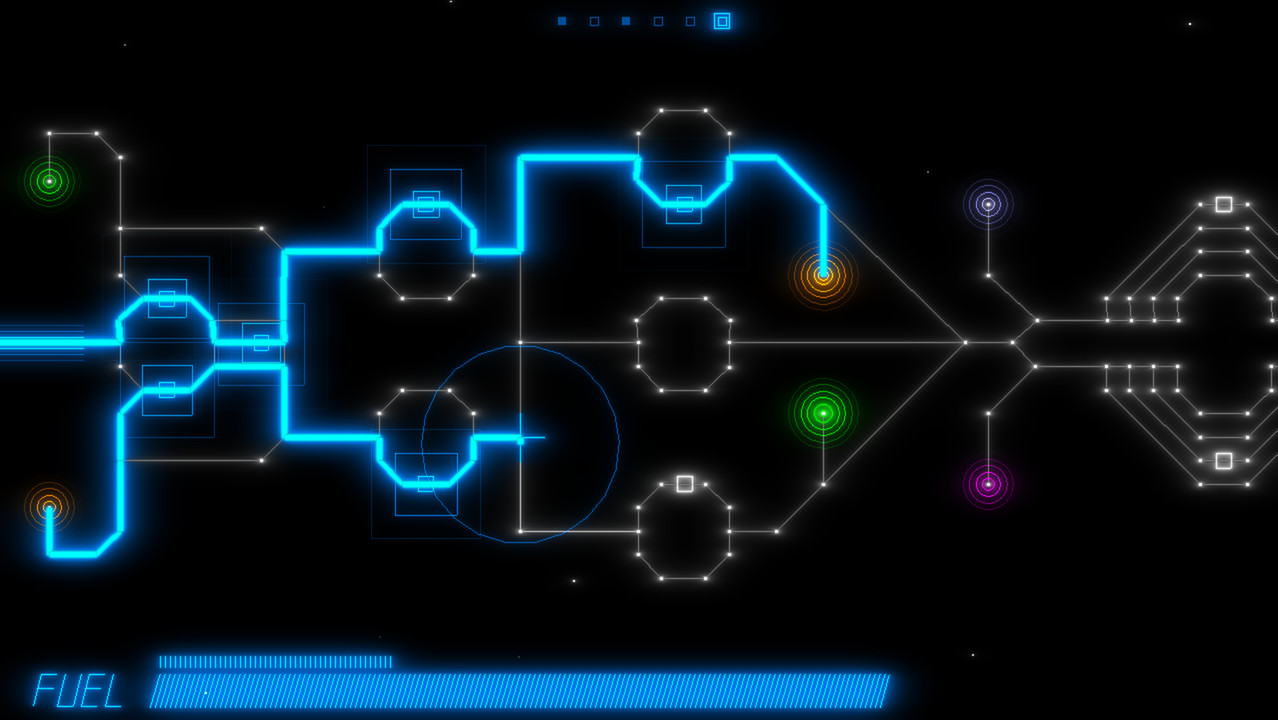Trace Vector - Review
Trace Vector begins with a soundtrack. Well, to be exact it begins with a line. Lines upon lines purposefully arranged into perfectly angular designs, burning neon star charts and spacecraft into an empty galaxy. It’s the soundtrack though which sets the tone, one which the game then eagerly joins in a chorus of 80’s sci-fi nostalgia. Thumping, reverberating drums and swelling synth mesh into retro adrenaline, drawing you into a minimalist time vortex while keeping its archaic roots at arm's length. A lot of games draw from classic 80’s sci-fi movies and themes; Terminator, Aliens, Star Wars. But almost always they do so in ways which are more reminiscent of the decade than part of it, possibly as the most common films drawn from are franchises which have yet to disappear themselves and thus things inspired by them inherently feel less dated. It allows for recognizable settings and characters, but often misses the beauty of something clearly antique but loved for that very reason.
Trace Vector feels like a game ripped from an outmoded computer and remastered with a modern sheen. Sparse geometrical collections of stars and the lines collecting them create a distance between you and the game in such a way as to give you room to fill in the missing details yourself. Every line and dot is precise and plain until your radiant ship draws a path through them, leaving a blaze of shifting color in its wake. Small embellishments create a sense of atmosphere and movement among the stars, and give the sense that Trace Vector is acutely conscious of its style. Its design is minimal because it wants and needs to be, not because it was all the artist could manage.
Limiting you to selecting whether to travel up or down on a branching path gives Trace Vector an omnipresent sense of urgency. There’s little room for error or a capacity to slow down, requiring you think several steps ahead and careful observe the map less you send yourself down a dead-end and waste what little fuel you have. The contrasting priorities between collecting fuel cells, often taking you into the most dangerous areas of levels, and getting through as quickly as possible provides a constantly evolving feeling of engagement. I was constantly having to weigh the odds between picking up extra fuel and playing it safe and having to decide in a split second or miss the opportunity.
Trace Vector isn’t an easy game, but it’s not so hard as to become overly frustrating. The intensity with which you direct your ship has a habit of making the game feel more impossible than it actually is, heightening my senses to the point they began to overwhelm my ability to plan effectively. Trace Vector counters this with moments of calm, inserting levels where it’s impossible or extremely difficult to lose between those that require a higher level of reflex.
Positioned in the midst of all this is the unassuming narrative developing between your ship’s pilot and the AI controlling it. In keeping with the game’s design, it’s minimal but focused, asking questions of the value of artificial life and its right to free will. In another context this could have unravelled into overly philosophical monologues far beyond the game’s scope, but Trace Vector never extends itself further than the task at hand. It’s story is entirely between two characters, but without excluding the audience drawing more from it.
Final Word
I didn’t expect much, maybe not anything from Trace Vector. It seemed rudimentary and unrefined, but within itself there’s a world of nuance that’s difficult to grasp from screen shots. The more I let it take control the more I grew to love its unified design and simplicity. It’s a really special game that is likely going to have trouble bringing in an audience, but once they’re here I can’t imagine them wanting to leave.




